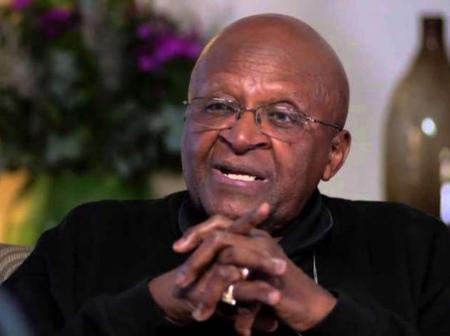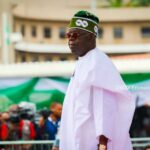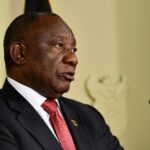South African Anglican Archbishop and 1984 Nobel Peace Prize Laureate, Desmond Mpilo Tutu, who died on December 26, 2021, led a consistent life as a freedom fighter and champion of conflict resolution. His towering image rose as high as that of the late South African President, Nelson Mandela, as both of them stood against the obnoxious apartheid system that inflicted injustice and inequity on the majority black South Africans. To demonstrate that his activism against the discriminatory white minority rule was devoid of bitterness, Archbishop Tutu innovated the doctrine of “Rainbow Nation,” in the 1990s in the twilight of the apartheid regime, in order to encourage the coalescence of all races in South Africa – Black, Indian, White – in the emerging post-apartheid regime. This doctrine was to dominate the cosmology of the country for decades after the end of the apartheid system.
- NIGERIA DAILY: Why Tension Is Rising Higher In Imo State
- Bashir Tofa, courageous patriot who fought to keep Sanusi on the throne
To demonstrate his sense of social inclusion, Desmond Tutu severally and unequivocally spoke about forgiveness and the need to accommodate diverse views. For instance, he was quoted as saying”We shall be free only together, black and white. We shall survive only together, black and white. We can be human only together, black and white. Together.” To emphasise this, he was quoted as saying at another event: “My humanity is bound up in yours, for we can only be human together.” This evocation cuts the underbelly of the discriminatory apartheid system, founded on the superiority of the White race to the Black race, and all the numerous undercurrents that generated social upheavals in Southern Africa.
Though Desmond Tutu’s life epitomised anti-apartheid struggles, he was intentional in the choice of his pathway through life. After his secondary education at the South African Mission schools, Archbishop started his career as a school teacher, but he quit after two years in 1957, to take to the ecumenical career at St Peter’s Theological College in Johannesburg. He was ordained an Anglican priest in 1961. In 1978, as the general secretary of the South African Council of Churches, Desmond Tutu also became a leading spokesperson against the abuse of the rights of Black South Africans. He did not play the ostrich by hiding his face in the scriptures and explaining away the inhuman oppression meted out by white apartheid apologists on blacks. Archbishop Tutu drew both national and international attention to the iniquities of the apartheid system, challenging world bodies to impose diverse sanctions on the government.
Apart from his activism that brought him international recognition and fame, perhaps the next most important legacy Archbishop Tutu bequeath South Africa was his role as head of the Truth and Reconciliation Commission (TRC) set up in 1995 by President Nelson Mandela’s regime, after the historic democratic election that drew the curtain on apartheid system. The court-like body was instituted in order to help heal the country of the brutalities of the wicked apartheid regime and lead to genuine reconciliation by uncovering the real truth about the human rights abuses that took place during the period of apartheid. Its emphasis was the gathering of evidence and uncovering of information from both victims and perpetrators of the abuses, though it was not meant to lead to prosecution of those found to have engaged in wrongdoing. The TRC was considered a success, because it was the first such comprehensive hearing that attracted commendations from the international community. It was hailed as a novel approach to peace building and justice. In spite of the fact that the victims of human rights abuses during apartheid were blacks, the TRC did not spare blacks who engaged in extrajudicial killings and inhuman acts. The implementation of the TRC’s recommendations may not be comprehensive, but Archbishop Desmond Tutu gave a good account of himself – and that of other members of the TRC – as unbiased, impartial and nationalistic in executing the delicate assignment.
The legacy left behind by Archbishop Tutu is enormous, not only for South Africans but for the rest of Africa, engaged in diverse internecine conflicts – religious, communal, economic and political. In spite of the fact that he was an Anglican Archbishop, Tutu would not support sectarian bigotry. One of his famous quotes goes thus: “God is not upset that Gandhi was not a Christian, because God is not a Christian. All of God’s children and the different faiths help us to realise the immensity of God.” Archbishop Tutu was an apostle of unity in diversity and social inclusion. The world would be a better place if everyone thought in this manner. Far thee well, Archbishop Desmond Tutu.

 Join Daily Trust WhatsApp Community For Quick Access To News and Happenings Around You.
Join Daily Trust WhatsApp Community For Quick Access To News and Happenings Around You.


